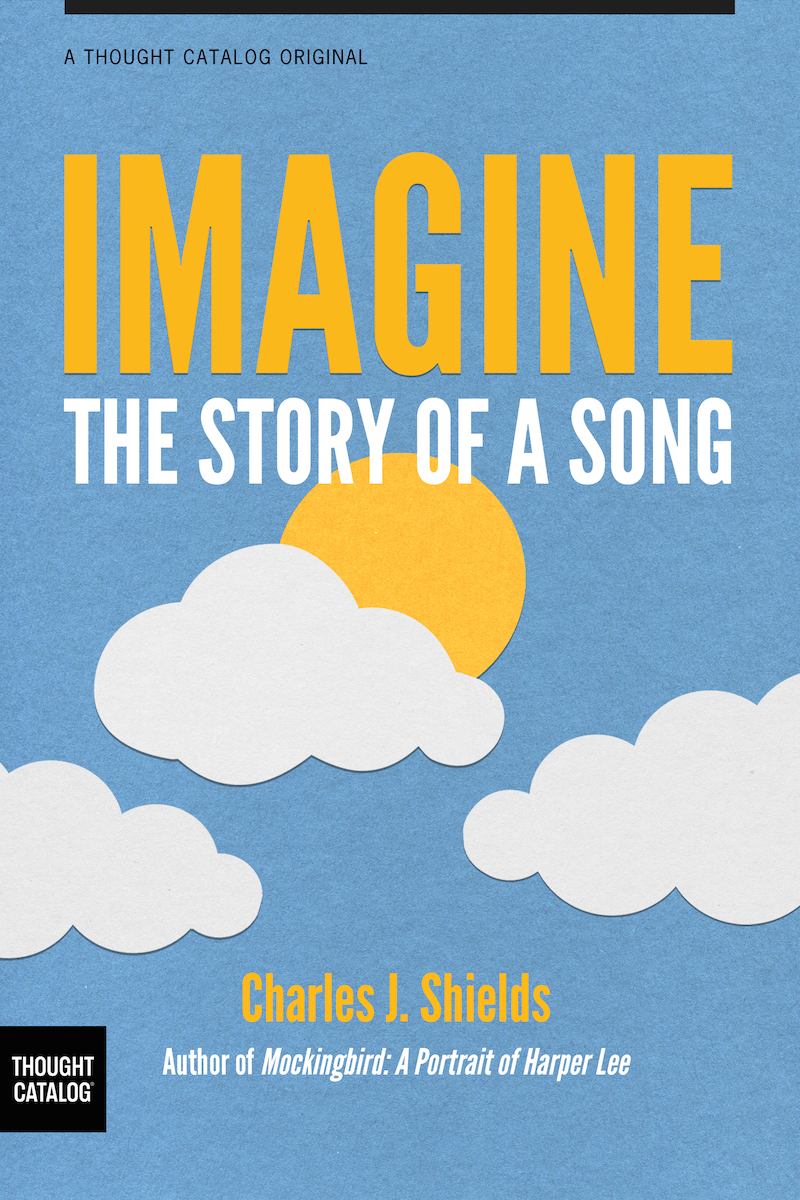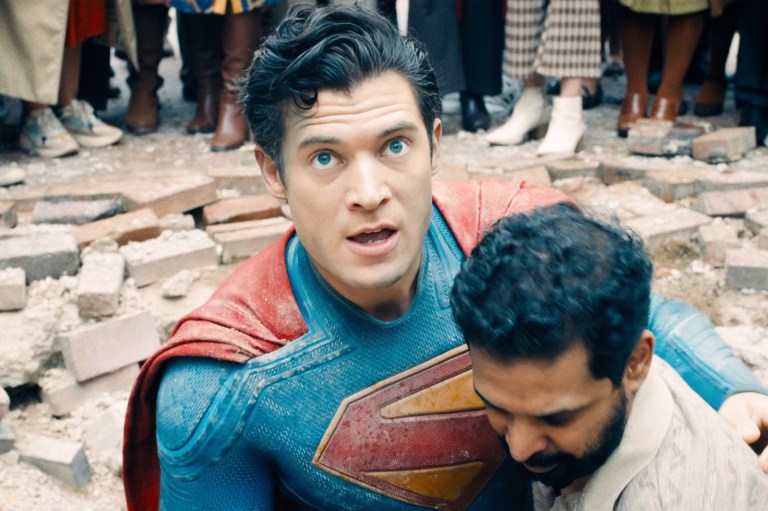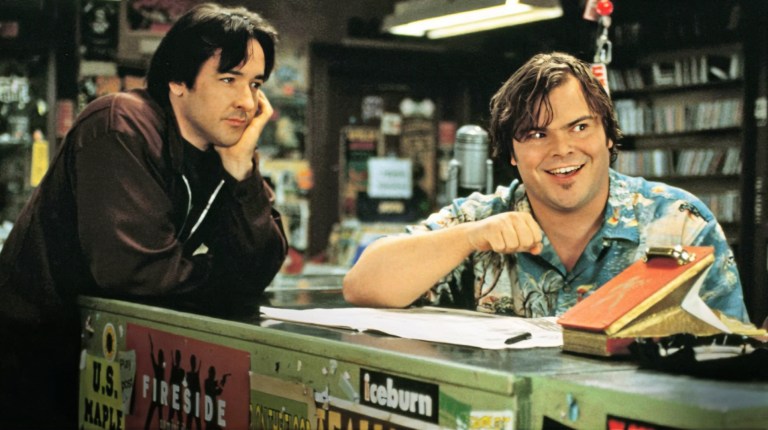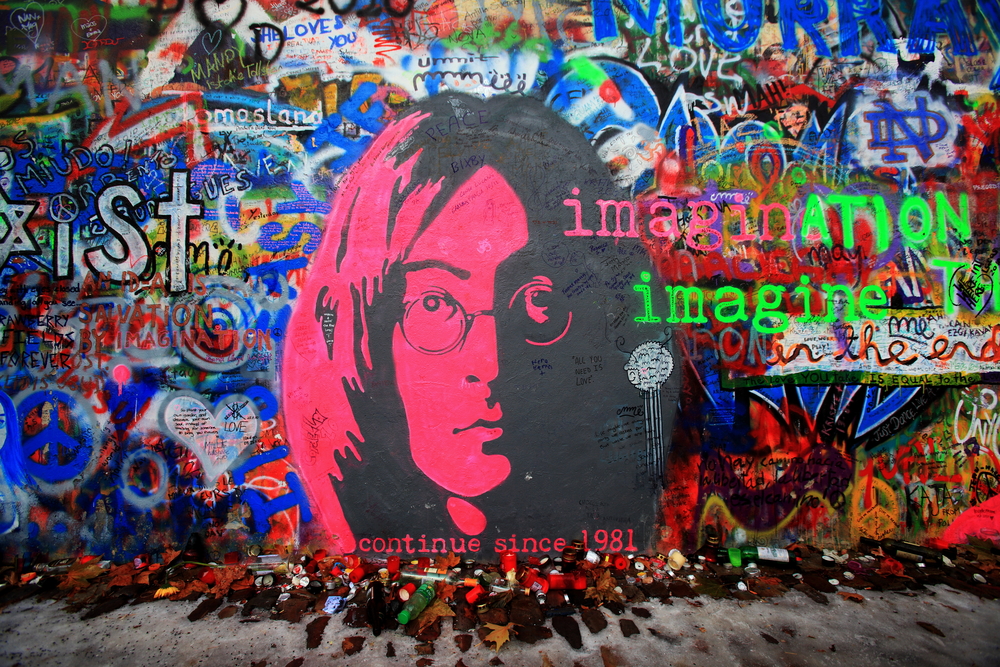
5 Surprising Ways John Lennon Changed the World
Until Lennon's remark that the Beatles were "more popular than Jesus", pop culture had been dismissed as a "kid thing" and unimportant. But after that, it was regarded a social force to be reckoned with.
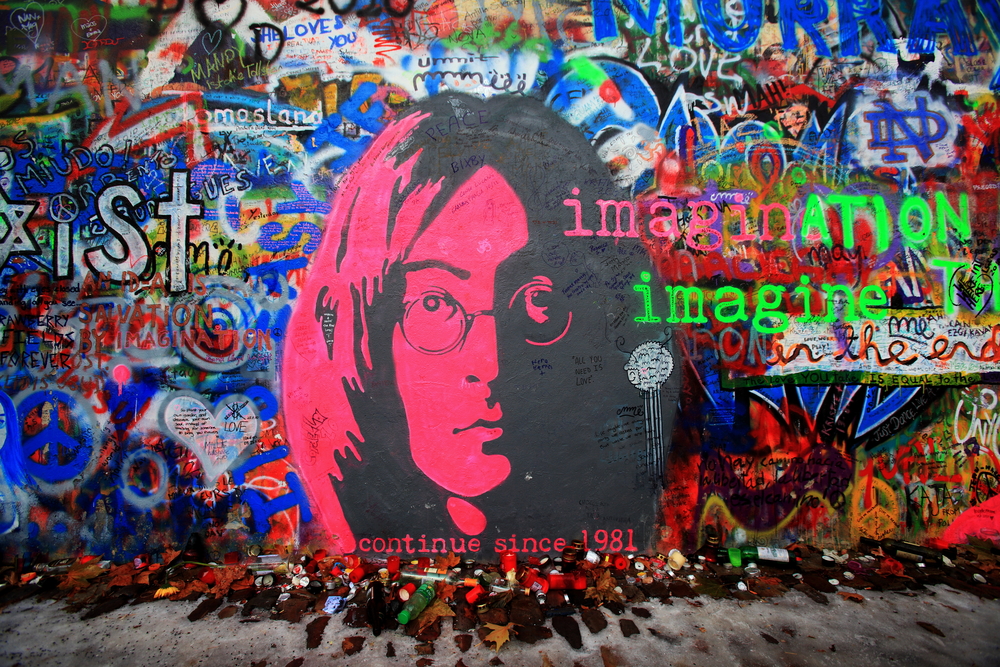
1. His remark, “We’re more popular than Jesus now,” was the first major acknowledgement of the power of pop culture.
In a March 1966 interview in London, John speculated about the Beatles’ popularity and the future of Christianity. His ironic comment, “We’re more popular than Jesus now” went practically unnoticed in Britain.
But later in July, an American teen magazine, Datebook carried the quote and the “Down with the Beatles” campaign was on.
Churches held burnings of their records; Mexico, Spain, and South Africa each officially issued a ban on all Beatles records. The Vatican, no less, denounced Lennon in its newspaper, L’Osservatore Romano.
John and the rest of the Beatles received heaps of hate mail, although the Bishop of Boston wrote to John agreeing with him.
Until Lennon’s remark, pop culture had been dismissed as a “kid thing” and unimportant. But after that, it was regarded a social force to be reckoned with.
2. Lennon lived his life openly in the public eye, changing what it means to be a performing artist.
When the Beatles broke into the popular music scene in the early 60s, singers, actors, and musicians were under the thumb of record, television, and movie companies and their publicists. Entertainers adopted personas that would please their public, even to point of, for instance, agreeing to phony marriages to hide being gay.
At first, the Beatles took the advice of their manager Brian Epstein and appeared as four well-dressed young men from Liverpool. But Lennon couldn’t hide his wit, his complaints, or his opinions. (Epstein did successfully convince John to keep his first marriage a secret because fans would be disappointed).
After Brian’s death in 1967, Lennon went full-throttle as himself, and willingly took the criticism. Although in the “The Ballad of John and Yoko,” he burst out:
Christ! You know it ain’t easy, You know how hard it can be, The way things are going, They’re gonna crucify me.
Still, he persevered with being who he was, even to the point of writing and singing about sides of himself that were shameful: his excessive drinking, drug use, and violence toward women. The message of his emotional confessions in music was that he was a human trying to find his way — not a star whose life seemed perfect.
Since then, artists, musicians, actors and entertainers have tended to show their fans who they really are — whether we want to know not.
3. Lennon was key to stoking popular opinion against the war in Vietnam.
Some people go so far as to say Lennon’s activism stopped the war in Vietnam.
That’s not true, of course, and it ignores the not only the huge anti-war demonstrations in Washington, the campus take-overs, and the national outcry over Ohio National Guard troops killing four protesting students at Kent State University.
Instead, it was Lennon’s move in the opposite direction — toward peaceful protest — that angered, bewildered, and ridiculed supporters of the war.
Take the famous Bed-Ins, for instance. Here’s an excerpt from Imagine: The Story of a Song.
Realizing how any major event involving John Lennon became news, he and Yoko decided to use their marriage on March 20, 1969 to promote the cause of peace. Naturally, the press would want access to wedding, only the pair went a step further: they invited the world into their bedroom. At the Amsterdam Hilton, every day between 9 am and 9 pm, March 25-31 visitors and reporters were welcomed in to their honeymoon suite where they found the couple propped up chastely on the pillows, wearing white pajamas, talking about peace. The effect was disconcerting and provocative. Had the reporters been duped? Was a young couple on their honeymoon in bed really news? Or they just objects, the way the Vietnamese seemed de-humanized on the six o’clock news? Regardless, the press took the bait and the event was covered world-wide. In May, the couple repeated a Bed-In in Montreal. They invited Timothy Leary the former Harvard professor and LSD prophet, civil rights leader Dick Gregory, and poet Allen Ginsburg, among many others. With the room crowded to bursting, John invited everyone to sing-along on ‘Give Peace a Chance.’ As he played acoustic guitar, accompanied by Tommy Smothers of the Smothers Brothers, someone rhythmically thumped a closet door shut in time to the beat for the percussion. After the recording was released in July 1969, ‘Give Peace a Chance’ became an anthem for the anti-Vietnam war and counterculture movements.
4. Lennon’s Song “Imagine” has become an international anthem to peace.
Issued by Apple Records in the United States in October 1971, “Imagine” became the best-selling single of Lennon’s career as a solo artist.
In 1999, Broadcast Music, Inc., one of the world’s largest the performing rights business, named “Imagine” one of the top 100 most-performed songs of the 20th century. Rolling Stone magazine in 2004 placed it third on it list of “The 500 Great Songs of All Time” describing it as “an enduring hymn of solace and promise.”
In Imagine: The Story of a Song, I point out that former president Jimmy Carter told NPR, “in many countries around the world — my wife and I have visited about 125 countries — you hear John Lennon’s song ‘Imagine’ used almost equally with national anthems. So John Lennon has had a major impact on some of the countries that are developing in the world.”
5. Lennon’s fight against deportation was the beginning of legalizing marijuana.
In 1972, President Nixon was running for reelection, and he had a problem: John Lennon.
John and Yoko had been living in New York for a year and often showed up at antiwar rallies to sing “Give Peace a Chance” — and to tell their fans that the best way to give peace a chance was to vote against Nixon.
The Nixon White House responded by ordering Lennon deported.
Why? Because he had plead guilty to a misdemeanor charge of cannabis possession in London in 1968, and US immigration law at the time banned the admission of anyone convicted of any drug offense.
Leading writers and artists joined a letter-writing campaign to let Lennon stay, among them John Updike, Joyce Carol Oates, Joseph Heller, Bob Dylan, Joan Baez, Leonard Bernstein, and John Cage, all of whom protested to the INS that Lennon was a cultural asset in the United States.
One way Lennon fought the deportation order was by going on the late-night “Tom Snyder Show” and telling his side. As Lennon’s attorney described John’s misdemeanor charge involving traces of cannabis resin, the government’s response to the “danger” of marijuana began to seem ludicrous. Clearly the law concerning illegal drugs was too far-reaching and unrealistic.
Today, with retail marijuana being sold in Colorado and half-a dozen other states considering allowing it as well, it’s worth remembering the high-profile case of John Lennon, how he fought it, and the order was rescinded — after Nixon resigned from office. ![]()
Check out the story behind “Imagine,” the song that changed the world.
